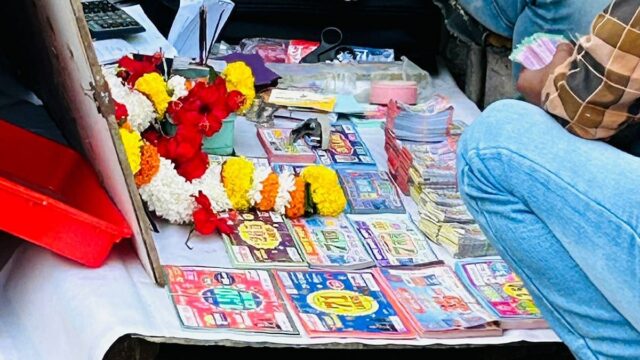An Unworthy Emulation: Maharashtra’s Lottery Panel Should Learn From Kerala’s Welfare, Not Gambling | Representational Image
The Maharashtra government’s recent decision to constitute a 10-member all-party committee to study the Kerala State Lottery system is, to put it mildly, outlandish. At a time when pressing economic and social issues cry out for serious attention, such a move only betrays a disturbing willingness to emulate the worst aspects of governance while ignoring the best.
Kerala, no doubt, offers much to emulate. Its model of development—rooted in universal education, strong public health infrastructure, and people-centric welfare schemes—is a testament to long-term policy vision and grassroots empowerment. Maharashtra, with its industrial muscle and demographic diversity, would do well to adapt some of these features to its own context.
The state-run lottery is one “success” story that deserves rejection, not replication. The genesis of the Kerala Government Lottery dates back to 1967, when P.K. Kunju, the visionary finance minister in the EMS Namboothiripad-led coalition government, launched it as a state-controlled alternative to the exploitative private lotteries rampant at the time.
Institutions, including colleges, were then luring buyers with glittering prizes like Ambassador cars and cash awards. Kunju’s idea brought in transparency and public oversight. The draws were held in district centres, in full public view, and offered better prize money. Initially, this model did curb private malpractices and became a steady source of state revenue. But the unintended consequences soon began to show.
For one, it encouraged a vast army of unemployed youth to take to selling tickets as a desperate means of survival. Today, these agents throng markets, buses, and street corners, aggressively pushing tickets to a population that can ill afford them. The buyers, largely from the poor and lower middle class, often forgo basic needs for a chance at instant riches.
True, Kerala’s lottery revenue, crossing Rs 12,500 crore, is leagues ahead of Maharashtra’s modest Rs 3.52 crore net profit. But this difference only highlights the scale of the social dependence on gambling, not its merit.
For every rupee the government earns, countless rupees are lost by those who can least afford it. Worse, the lottery has been misused for money laundering. Unscrupulous individuals have been known to “purchase” winning tickets to whiten black money. In many states, such scandals led to the banning of lotteries altogether.
Informal media investigations reveal that even major prize winners often return to poverty, unable to manage sudden wealth. In this game of chance, the only consistent winners are the governments pocketing the taxes. If Maharashtra truly wishes to learn from Kerala, let it study its schools, its panchayats, and its public health centres—not its lottery counters. A welfare state should not thrive on the misery of the vulnerable.














































